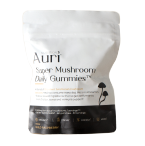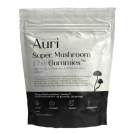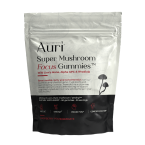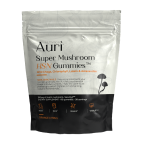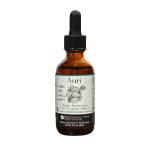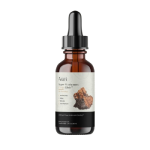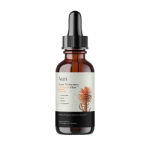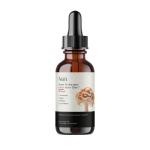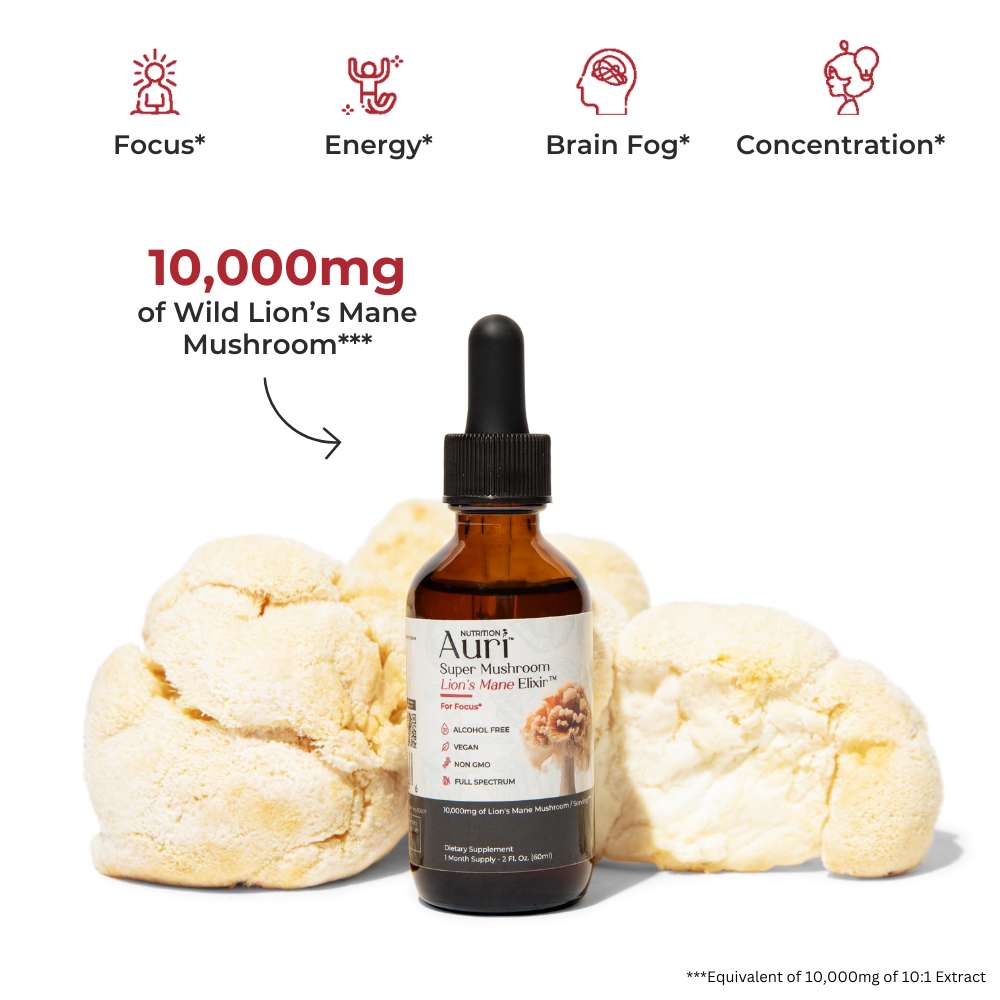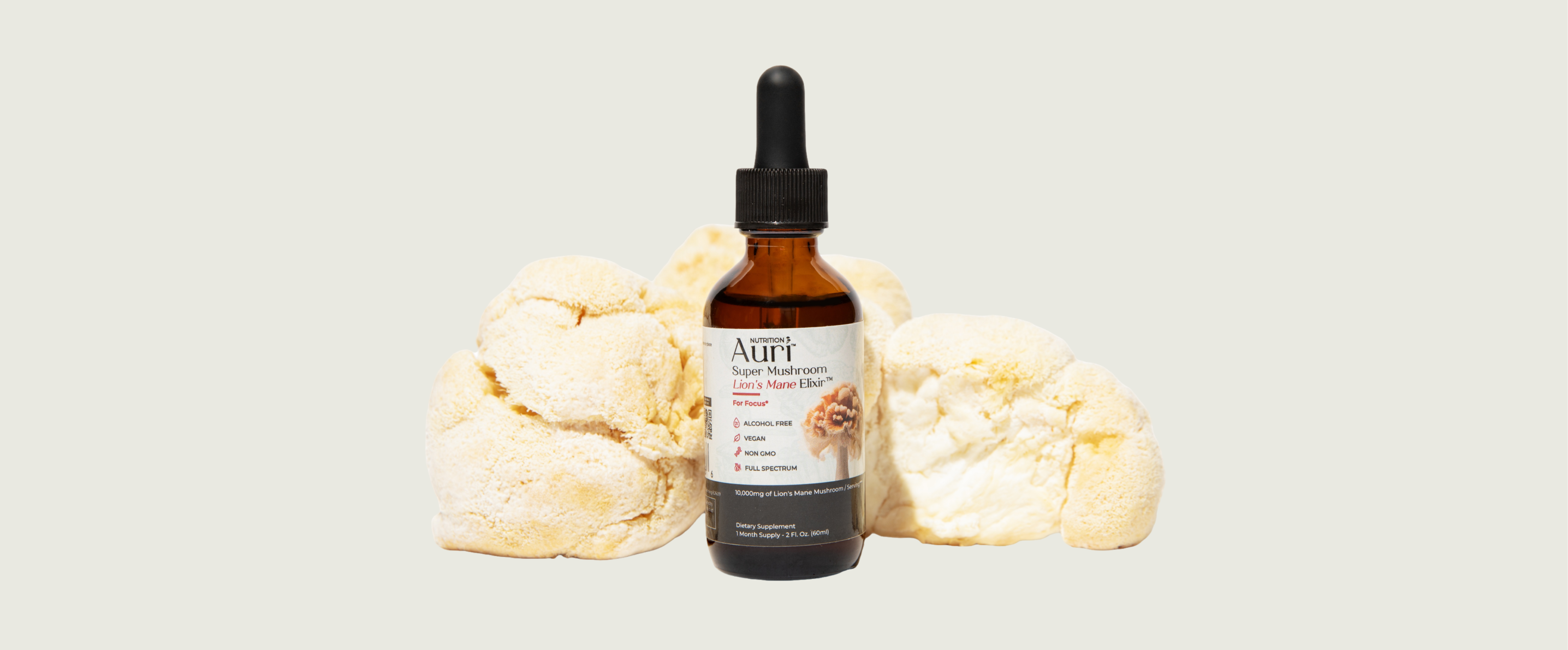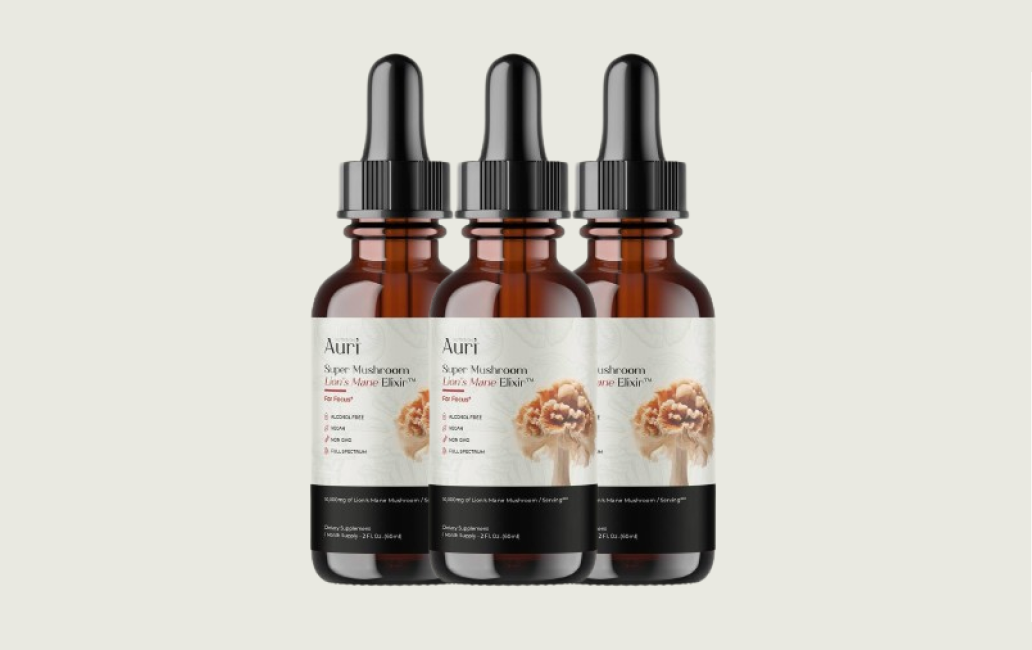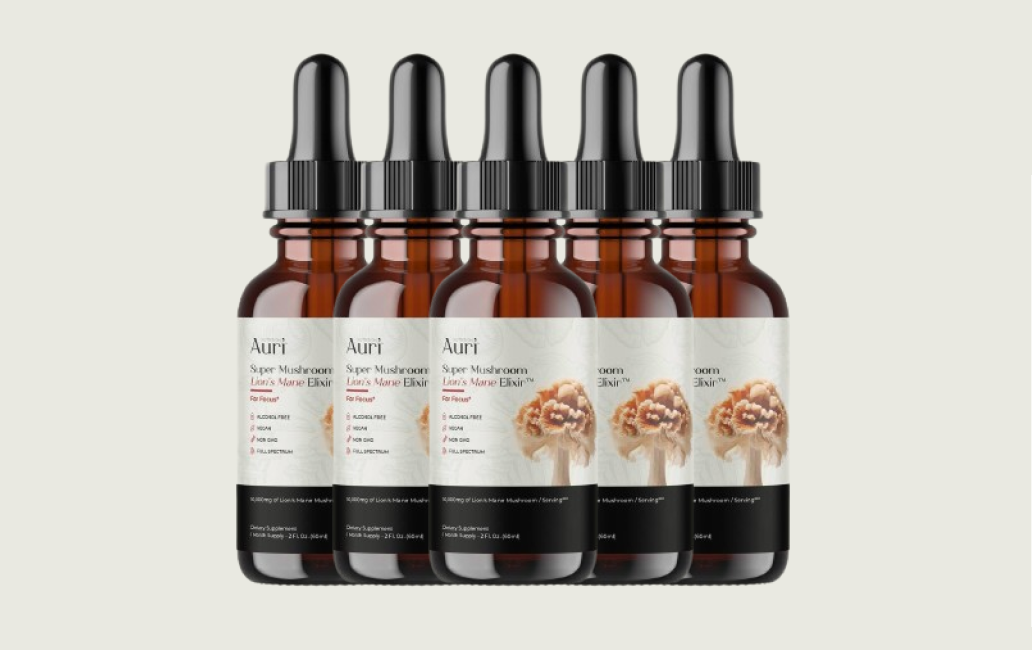"Been using Lion’s Mane Elixir, and wow—my focus is so much better, and I’m not crashing in the afternoon anymore. Even my sleep is deeper, with wild dreams. The days I skip it, I totally feel the difference. Seriously, if you need a boost, this stuff is worth it!"
🍄 Support cognitive function with our Super Mushroom Lion's Mane Elixir. Embrace the power of Lion's Mane mushrooms and let each serving:
🧠 Support Focus & Concentration*
⚡ Improve Cognitive Performance*
📘 Healthy Mood Stabilization*
💤 Aids Restorative REM Sleep*
Our elixir is a concentrate ally for supporting normal brain function, offering a powerful Lion's Mane extract for direct benefits. Ideal for daily use, this elixir is an amazing and simple way to support your mental acuity
10,000mg of Wild Lion's Mane / Serving (Equivalent of 10,000mg of Extract)
Lion's Mane (10:1 Extract)
(Hericium erinaceus) (Herbal Equivalent 10,000mg)
DIRECTIONS:
Draw up the recommended dosage of liquid into the dropper.
Drop two full droppers into an 8oz cup of water. For faster absorption, put two droppers under your tongue for one minute then swallow.
When will my order ship?
Once an order is placed we typically ship within 1 business day. The delivery time is typically 3-5 business days, but can be longer depending on location and circumstances.
60-DAY MONEYBACK GUARANTEE:
We stand behind our product.
100% refund valid for 60 Days on your first order, less shipping costs
No questions asked.
Simply contact us at hello@tryauri.com
3 days before your next shipment is set to go through, we will email you a reminder. By default, it will be another 30 servings delivered to you, and you can easily adjust or cancel at anytime.
-
Free Shipping On Orders $75+
-
Fast 3-5 day US delivery
-
60-day money back guarantee


Your Black Friday Deal Includes:
"Been using Lion’s Mane Elixir, and wow—my focus is so much better, and I’m not crashing in the afternoon anymore. Even my sleep is deeper, with wild dreams. The days I skip it, I totally feel the difference. Seriously, if you need a boost, this stuff is worth it!"
🍄 Support cognitive function with our Super Mushroom Lion's Mane Elixir. Embrace the power of Lion's Mane mushrooms and let each serving:
🧠 Support Focus & Concentration*
⚡ Improve Cognitive Performance*
📘 Healthy Mood Stabilization*
💤 Aids Restorative REM Sleep*
Our elixir is a concentrate ally for supporting normal brain function, offering a powerful Lion's Mane extract for direct benefits. Ideal for daily use, this elixir is an amazing and simple way to support your mental acuity
10,000mg of Wild Lion's Mane / Serving (Equivalent of 10,000mg of Extract)
Lion's Mane (10:1 Extract)
(Hericium erinaceus) (Herbal Equivalent 10,000mg)
DIRECTIONS:
Draw up the recommended dosage of liquid into the dropper.
Drop two full droppers into an 8oz cup of water. For faster absorption, put two droppers under your tongue for one minute then swallow.
When will my order ship?
Once an order is placed we typically ship within 1 business day. The delivery time is typically 3-5 business days, but can be longer depending on location and circumstances.
60-DAY MONEYBACK GUARANTEE:
We stand behind our product.
100% refund valid for 60 Days on your first order, less shipping costs
No questions asked.
Simply contact us at hello@tryauri.com
3 days before your next shipment is set to go through, we will email you a reminder. By default, it will be another 30 servings delivered to you, and you can easily adjust or cancel at anytime.
-
Free Shipping On Orders $75+
-
Fast 3-5 day US delivery
-
60-day money back guarantee


Benefits
An Elixir To Become Your Best Self
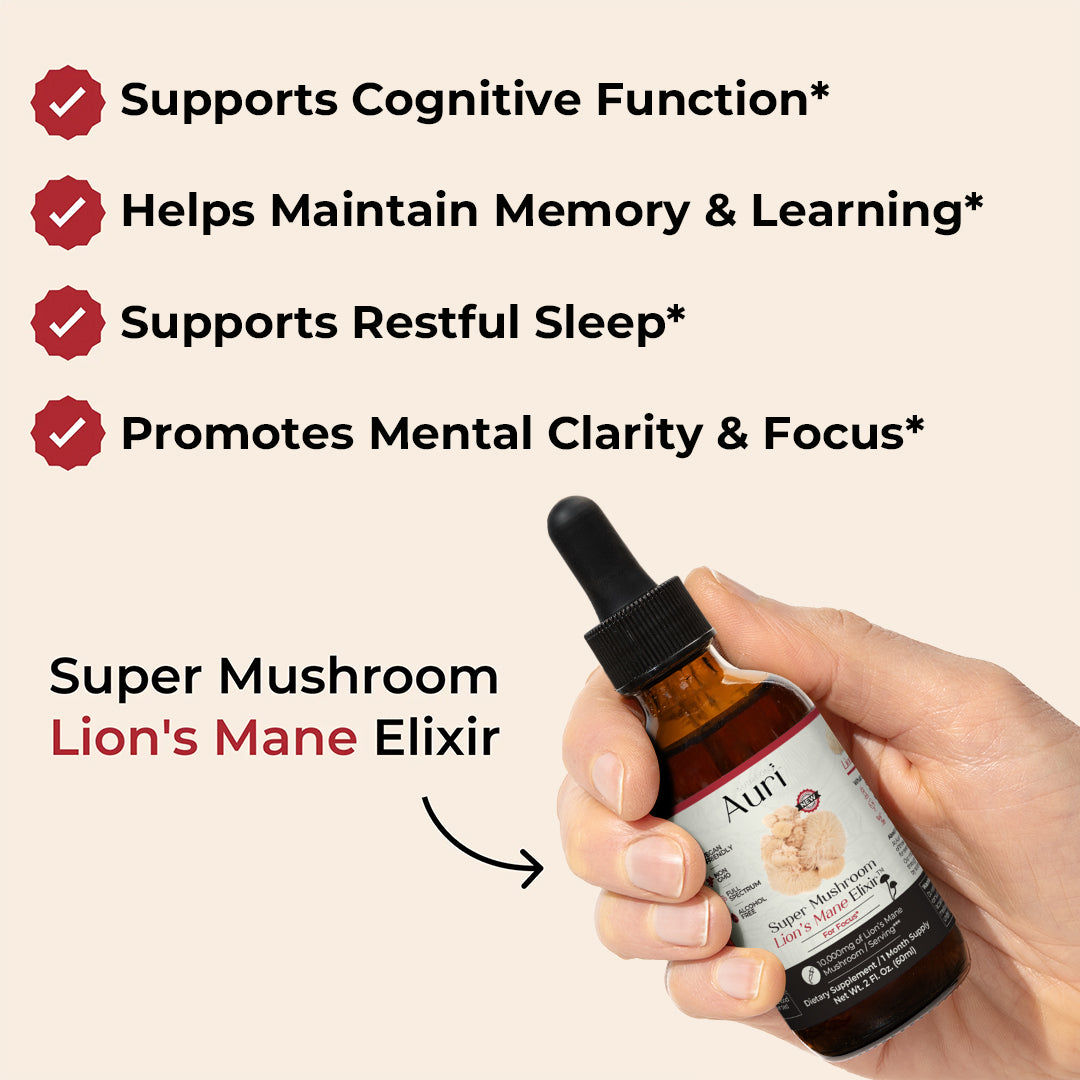

-
Supports Focus and Concentration*
Lion's Mane mushroom is celebrated for its ability to support cognitive function, including focus and concentration. By naturally supporting the production of NGF, Lion's Mane benefits overall brain health, mental clarity, and alertness. -
Assist Normal Memory Function*
Research suggests that Lion's Mane may support normal memory function. It's natural ability to stimulate NGF production is crucial for maintaining normal brain health at the cellular level, including the part of the brain dedicated to memory. -
Aids Restorative REM Sleep*
By supporting the quality of REM sleep, Lion's Mane helps the brain process and integrate new information, helping your cognitive function throughout the day.
A Daily Ritual That Feels Good
Skip bitter powders and hard-to-swallow capsules.
Auri Elixirs are crafted to blend into your coffee, tea, or water — smooth, delicious, and designed for your daily wellness routine.
Auri Mushroom Elixirs
Typical Liquid Supplements
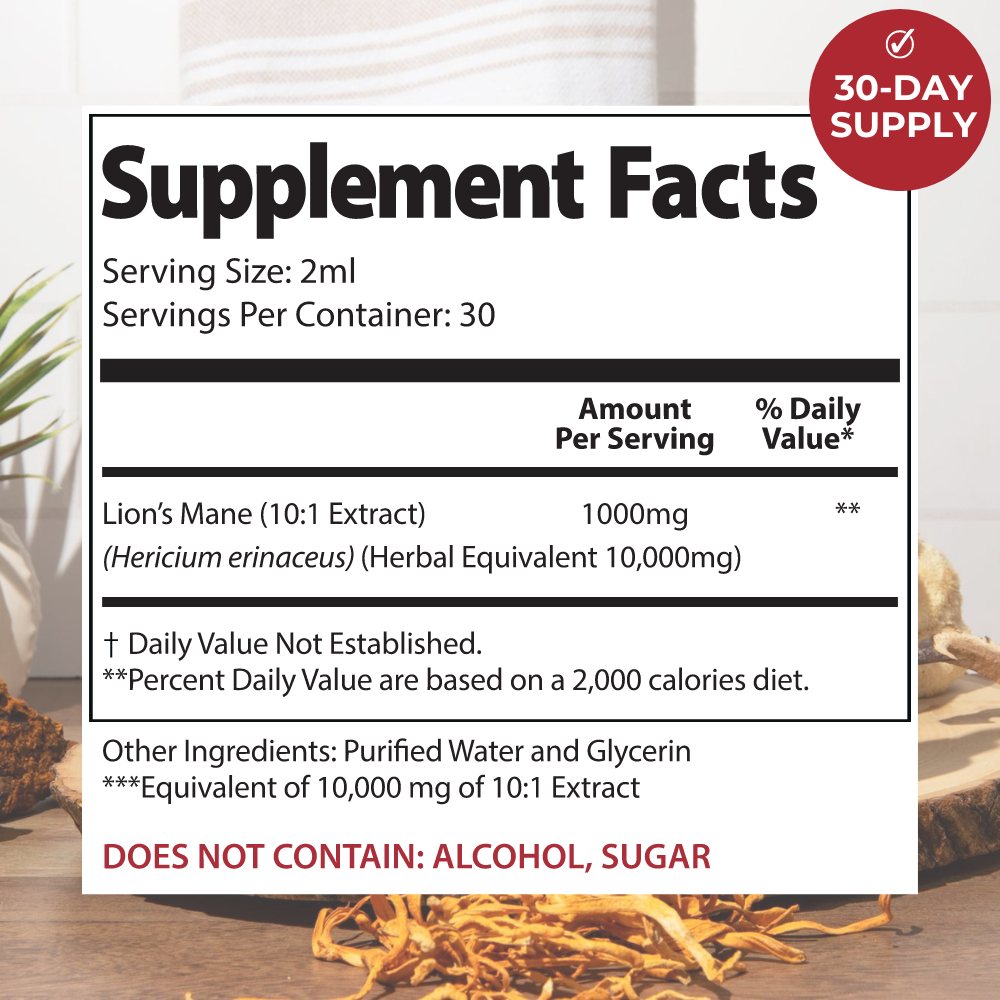

-
Alcohol Free
-
Vegan
-
Non GMO
-
Made In USA**
-
Full Spectrum
Tasty & Delicious
Mushrooms have never tasted THIS good before. Get the mushrooms you love and benefit from, without the nasty taste from powders and oils.
-
NOGMOs, gelatin, alcohol, food dyes, fillers & junk
-
YESVegan, gluten free, tastes great, real mushrooms, lab tested
Don't Take Our Word
Loved By Thousands Around The Globe
Our Promise
-
Feels (and tastes like) clarity.
-
Crafted carefully with premium ingredients
-
Rigorously lab tested
60-Day Moneyback Guarantee
We’d be shocked if you didn’t feel the effects, and enjoy the benefits of the Super Mushroom Daily Gummies. But in the highly unlikely event that you’re not happy in any way — we’ll give you every cent back. No hassle. No hoops to jump through.
You’re protected by our 60-Day Moneyback Guarantee. Email us at hello@tryauri.com and we’ll return every dollar you paid on your first order, less shipping costs.
Bundle & Save More!
UP TO $125 OFF-

-
X90 SERVINGS
-
$60 OFF
3-Pack Bundle ($60 off) ()Super Mushroom Lion's Mane Elixir™
Early Black Friday Sale EXCLUSIVE$99.00$165.00 -
-

-
X150 SERVINGS
-
$125 OFF
5-Pack Bundle ($125 off) ()Super Mushroom Lion's Mane Elixir™
Early Black Friday Sale EXCLUSIVE$137.50$275.00 -
FAQs
Use the below FAQ topics to find an answer! Still need help?
Please email us at hello@tryauri.com :)



